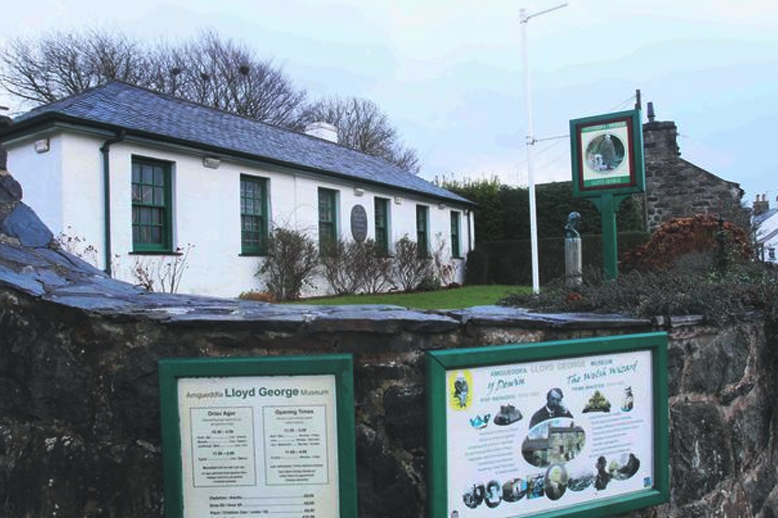Museum acts as custodian of important historical records
One of only two museums in Britain dedicated to former prime ministers, the Lloyd George Museum in Llanystumdwy serves as a tribute to one of the United Kingdom’s great reformers.
The museum acts as custodian of important historical records and artefacts that document the life and times of the inspirational war leader and social reformer, who along with Winston Churchill is the only one of Britain’s former leaders to be celebrated in this way.
One of Wales’ most iconic figures, David Lloyd George was actually born in Manchester on 17 January 1863 but his father abandoned his career as a schoolmaster in favour of farming in Pembrokeshire.
He died when David was only 17 months old and the family moved to Llanystumdwy in North Wales to live with David's uncle, a cobbler.
After an education at the local church school Lloyd George qualified as a solicitor, but always felt his destiny lay elsewhere.
At the age of 18 he made his first visit to the House of Commons and in writing about the experience in his diary on 12 November 1881 he said, "I will not say but that I eyed the assembly in a spirit similar to that in which William the Conqueror eyed England on his visit to Edward the Confessor, as the region of his future domain."
As Chancellor of the Exchequer from 1908-15, Lloyd George was a key figure in the introduction of many reforms which laid the foundations of the modern welfare state but his most important role came as the highly energetic prime minister of the Wartime Coalition Government from 1916-22, during and immediately after World War I.
He was a major player at the Paris Peace Conference of 1919 that reordered Europe after the defeat of the Central Powers.
The running of the museum and Highgate cottage is funded by Gwynedd County Council and further supported by the Friends of the Lloyd George Museum, a registered charity.
The museum includes displays illustrating the great politician’s career and his boyhood home of Highgate has also been recreated, along with his uncle's shoe-making shop.
Lloyd George's grave is a short walk away at Dwyfor.







